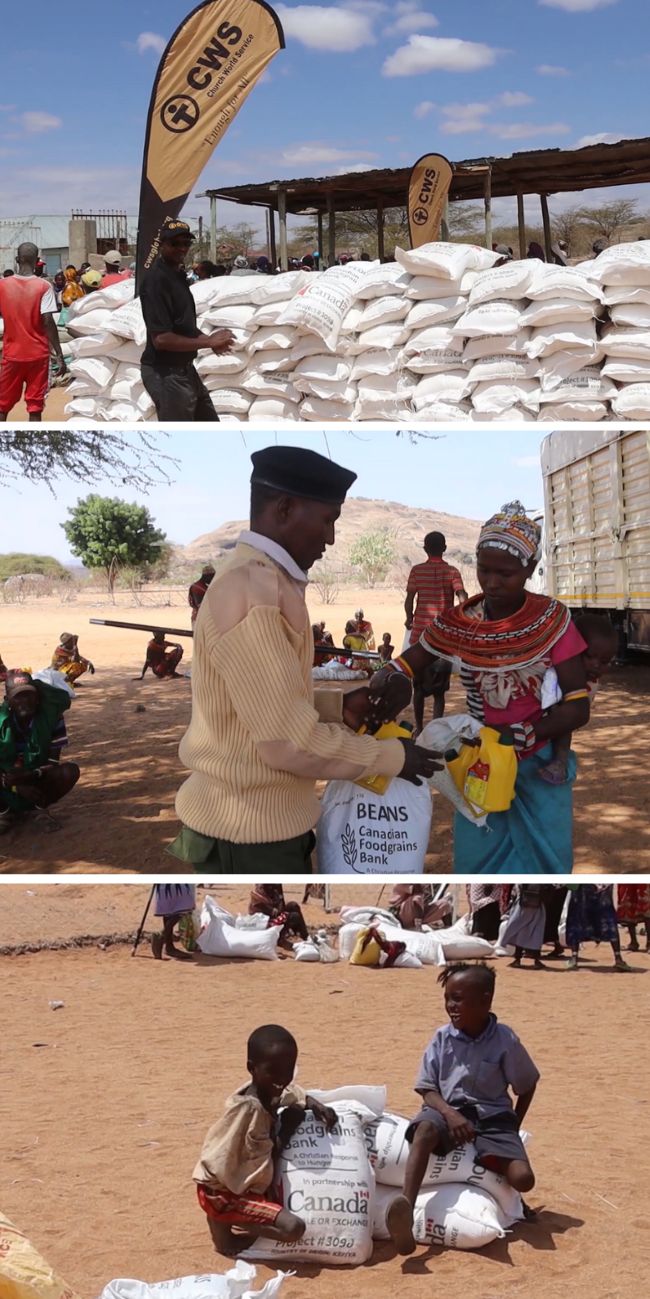Stories of Change

Top: Michael Kendagor stands next to rations, Middle: Local officer gives rations to resident, Bottom: Children laugh next to food rations
8,000 Lives Changed
In countries around the world, we are seeing the close connection between climate change and hunger. The ability to grow food is largely dependent on the environment. If the environment lacks stability, so does our ability to put food on the table. This tight-knit, cause-and-effect type of situation describes the current state of many communities in Kenya.
With our generous partner, the Canadian Foodgrains Bank, we have been monitoring the historic drought in Kenya and providing food assistance to those most affected. You may recall our recent project in Tana River County. Thanks to our partner, we are moving north and providing similar assistance to communities in the town of Lasiabis in Marsabit County.
In Laisamis, all are feeling the effect of hunger on their day-to-day lives. Local officer, Charles Mbole, shared, “several students have dropped out of school in this region due to starvation. Some have moved with their animals in search of pastures and others are too weak to walk to school.” Julieta Sumper, a local resident and program participant added, “our children were malnourished. Some were only surviving on nuts.”
The assistance provided has been the much-needed relief many families needed to regain their strength. Michael Kendagor, CWS’ Emergency Coordinator explained, “we are here to reach out to about 4,000 households, which is about 26% of the entire population of Laisamis sub-county. For each household, we are giving about 50 kilos of maize, 7 kilos of beans, 3 liters of cooking oil and half a kilo of salt.” (That’s about 110 pounds of corn, 7 pounds of beans, almost 1 gallon of oil and a little over a pound of salt!)
In response to the assistance, Julieta said, “we are thankful for the food assistance from CWS.” Our current goal is to reach about 8,000 people within the sub-counties by the end of the project. These 8,000 individuals represent a child who can go to school again, a parent who no longer has to worry about their children going hungry and a neighbor who can choose to stay in the place they call home.
We would like to thank our partners, Canadian Foodgrains Bank and the Primate’s World Relief and Development Fund, as well as Global Affairs Canada for allowing this assistance to be possible.
